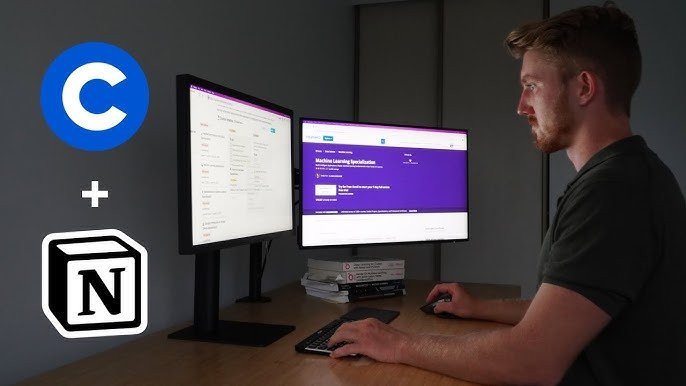How to Learn Data Science with Coursera
Coursera is well-known for its wide range of flexible learning options. Let’s explore why it is a great choice for future data scientists:(Data Science)
Expert-Led Courses
Coursera works with top universities and companies to offer courses taught by experienced professionals. This means the content is up-to-date and meets industry standards. Learning from experts gives you insights from those who truly understand data science, improving your education quality.
Flexible Learning Paths
One major benefit of Coursera is its flexibility. Courses fit different schedules, making it easier for learners to find time to study. Coursera helps you learn in a way that suits you. You can study on weekends or in short daily sessions. This makes education less stressful.
Certification and Recognition
When you finish a course on Coursera, you get a certificate. You can share this with employers or add it to your professional portfolio. This certificate shows your skills and boosts your credibility in the job market. A recognized certificate from a respected institution can help you advance in your career.
Community Engagement
Coursera has a lively community of learners and professionals from around the world. Joining this community can greatly enhance your learning experience. Being part of an active group can help you learn. You can join discussions, ask for help, or share ideas. This involvement can motivate you and provide valuable insights during your learning journey.
Getting Started with Coursera
Starting your data science journey with Coursera involves a few simple steps. Let’s walk you through them:
Creating an Account
First, you need to create a Coursera account. Go to the Coursera website, click on “Join for Free,” and follow the steps to sign up. This process is easy and takes just a few minutes. Once you register, you can access many learning materials in different subjects.
Exploring Data Science Courses
Now that your account is set up, it’s time to look at the data science courses. Use the search bar to type in keywords like “data science,” “machine learning,” or “statistics.” Coursera lets you filter courses by difficulty level. This way, you can find content that fits your skills and learning goals. Take some time to read course descriptions to see what each course offers.
Selecting the Right Course
Choosing the right course is important. Here are some tips to help you make a good choice:
-
- Course Content: Make sure the course includes topics that match your goals. Look for courses that mix theory and practice. A good curriculum will help you build a strong base in data science.
- Instructor Credentials: Check the instructor’s background. Courses taught by industry experts or professors from well-known universities are usually more trustworthy. Knowing your instructor’s skills can boost your confidence in the material.
- Reviews and Ratings: Read reviews from other students to see how good the course is. Positive feedback from past learners can show a course’s effectiveness.
- Course Duration and Commitment: Think about your schedule and pick a course that fits your time. Some courses need more time than others, so choose one that matches your personal and work commitments.
Recommended Coursera Data Science Courses
Here’s a list of top-rated data science courses on Coursera for different interests and skill levels:
Data Science Specialization by Johns Hopkins University
This program covers the whole data science process, from data handling to machine learning. It’s great for beginners and those wanting to strengthen their understanding of basic concepts. The specialization has several courses, each focusing on different parts of data science for a complete learning experience.
Machine Learning by Stanford University
Taught by the famous professor Andrew Ng, this course is essential for anyone interested in machine learning. It covers key algorithms and techniques with hands-on assignments. The course is known for its clarity and depth, making tough concepts easier to understand. With practical tasks, you can apply what you learn in real-life situations.
IBM Data Science Professional Certificate
This series of courses by IBM gives hands-on experience with data science tools and methods. It is perfect for anyone wanting a career in data science. The program covers topics like data visualization, machine learning, and data analysis. You will gain practical skills that you can use right away at work. The professional certificate shows your skills and readiness for data science jobs.
Python for Data Science, AI & Development by IBM
If you are new to programming, this course is a great start. It introduces Python, an important language in data science. The course teaches the basics of Python programming and how to use it in data science and artificial intelligence. By the end, you will be able to write Python code and work on data science projects by yourself.
Maximizing Your Learning Experience
To get the most from your Coursera courses, try these strategies:
Setting Clear Goals
Before you start a course, think about what you want to achieve. Whether it’s learning a specific tool or grasping a tough concept, clear goals will keep you motivated. Write down your goals and check them often to track your progress and stay focused.
Staying Consistent
Set aside time each week to study and practice. Consistency helps you remember information and build skills. Create a study routine that fits your life, whether it’s an hour each day or a few hours on the weekend. The more often you engage with the material, the better you will remember and use what you learn.
Engaging with the Community
Join course forums and discussion groups. Engaging with peers can improve your understanding and give you valuable insights. Take part in discussions, ask questions, and share your experiences. Networking with fellow learners can create new chances for collaboration and offer different views on the material.
Applying What You Learn
Using what you learn is very important. Practice your skills with real-world datasets. Many courses have projects that mimic real-life situations, which can be very helpful. Working on practical projects helps you learn better. It also allows you to create a portfolio. This portfolio can showcase your skills to potential employers.
Beyond Courses: Building a Data Science Portfolio
As you move forward, start creating a portfolio to show your skills. Include projects and any certifications you earn. A strong portfolio can help you stand out in job applications and interviews. Document your projects well, including your methods and results, to show your problem-solving skills and technical knowledge.
Contributing to Open Source Projects
Get involved with the data science community by contributing to open-source projects. This is a great way to gain experience and connect with other professionals. Joining open-source projects lets you use your skills in team settings and learn from others’ work.
Attending Webinars and Workshops
Many organizations offer webinars and workshops. These events can help you learn and stay updated on industry trends. Attending these events helps you learn from experts. You can ask questions and gain insights into new technologies and practices in data science.
Conclusion
Learning data science with Coursera is a smart choice for anyone wanting to improve their skills in this important field. With expert-led courses, flexible options, and a supportive community, Coursera gives you the tools to succeed. Start your data science journey today and open new doors for growth and advancement.
Remember, success comes from not just learning but also applying your knowledge. As you move forward, keep exploring and practicing. Engage with the community. This will help you stay ahead in the fast-changing world of data science. With dedication and the right resources, you can change your career and become a skilled data scientist.

Leave a Reply